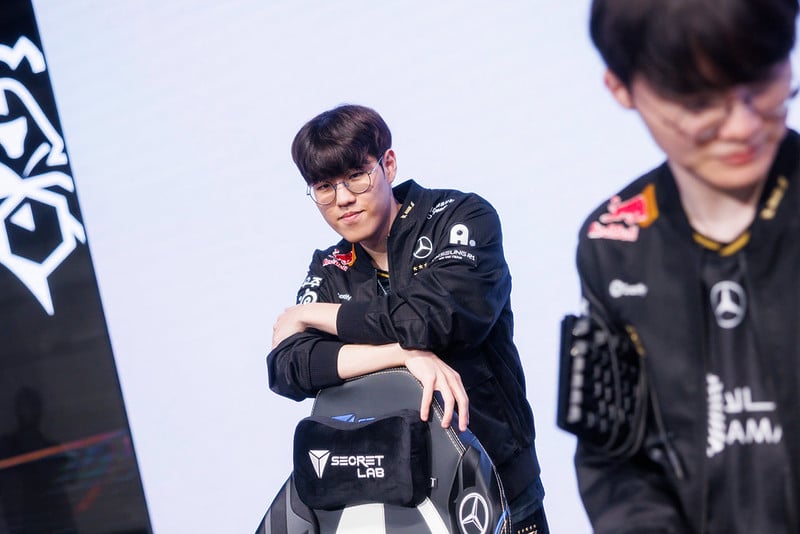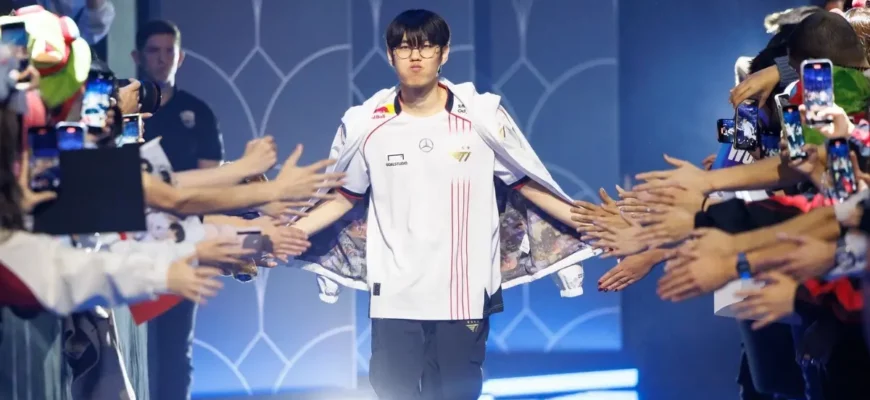The spotlight of the League of Legends Worlds 2025 Swiss Stage has a way of illuminating not just triumph, but also the raw, human realities behind competitive glory. For fans, it`s a spectacle of strategic brilliance and mechanical mastery; for players, a grueling marathon where every detail matters. This year, the early rounds delivered a significant jolt when reigning champions T1, a name synonymous with dominance, found themselves in the 1-1 bracket after an unexpected stumble against the LCP`s CTBC Flying Oyster (CFO). It was a moment that reminded everyone: even legends are not invincible, and the pursuit of perfection is an endless journey.
Following this pivotal best-of-one encounter, T1`s accomplished jungler, Mun `Oner` Hyeon-jun, offered a candid glimpse behind the curtain in an exclusive interview. Far from making excuses, Oner`s reflections painted a picture of profound respect for his opponents, piercing self-awareness regarding his team`s preparedness, and the often-overlooked personal costs embedded in the life of a top-tier esports professional.
The Humbling Reality: When Champions Stumble
T1 had entered the Swiss Stage with a strong showing, dispatching Invictus Gaming in the play-ins and then FlyQuest, seemingly building an unstoppable momentum towards what many anticipated would be a third consecutive world title. But CFO, a team that had already pushed T1 to their limits at MSI 2025, once again proved their mettle. This time, they secured the outright victory, sending ripples of surprise through the global esports community.
Oner, ever the pragmatist, acknowledged the inherent strength of their adversaries. “Since last year, I always felt like CFO was such a great team,” he stated, adding, “They play so well, and I was just reminded that they’re such a strong team.” This isn`t merely sportsmanship; it`s a recognition of genuine, formidable skill. He also pointed to the volatile nature of the best-of-one format, where “variables” can easily tip the scales, and every game offers both the chance to win and the crucial opportunity to learn.
The Human Element: Beyond Mechanics and Macros
What truly resonated in Oner`s dialogue was his honest appraisal of T1`s condition. In a world often obsessed with in-game mechanics and strategic prowess, Oner brought the focus back to the fundamental: human well-being. Recalling a previous interview where he emphasized the importance of condition over feedback, he revealed, “I have a sore throat, and of course, some people may think that it’s just a petty excuse, but I also think that it’s such a bummer that I didn’t take good care of myself, my own health.”
It`s a stark reminder that even the most celebrated athletes, digital or otherwise, are flesh and blood. A sleepless night, a minor ailment – these seemingly small factors can cascade into “team-wide mistakes” that cost dearly on the biggest stage. For a team of T1`s caliber, where margins for error are razor-thin, such human frailties become magnified. It’s a relatable vulnerability, lending a touch of poignant irony to the pursuit of superhuman performance. Even gods of the Rift, it turns out, are susceptible to common colds.
The Perpetual Student: Learning at the Apex
How does a team like T1, often regarded as the benchmark for excellence, continue to improve when they are already at the summit? The question itself carries weight: who do you look up to when you`re considered the standard? Oner`s answer was both insightful and humble, highlighting a philosophy central to sustained success:
“I feel that in every meta, there are always certain teams that end up showing up better, and they end up performing better than us… with those teams that adapt so well to those meta, there’s just someone to learn from.”
This philosophy is a testament to T1`s sustained excellence. It acknowledges the dynamic nature of League of Legends, where constant patches shift the meta, elevating new strategies, champions, and playstyles. Instead of resting on their laurels, T1 views every competitor, every evolving meta shift, as a potential teacher. It’s a relentless, almost academic approach to mastery, proving that even champions must remain perpetual students of the game, ever vigilant for the next innovation.

The `Sacrifice` of a Pro Gamer: More Than Just Game Time
The conversation inevitably turned to this year`s Worlds Anthem, `Sacrifice,` a poignant tribute to the immense personal costs borne by professional players. Oner`s response was sobering, laying bare the profound commitment required:
“As a pro gamer, I feel like you end up devoting your whole 20s, early 20s to mid-20s to your career… You also end up sacrificing your own health and your soul really.”
This isn`t merely about long practice hours and countless scrims; it`s a profound, all-consuming commitment that often means forsaking conventional youth experiences, robust social lives, and even consistent physical and mental well-being. To reach the pinnacle of esports often requires an unwavering, singular dedication, where the virtual battleground demands very real-world sacrifices. It`s a poignant counterpoint to the glamour and global recognition, highlighting the unseen price of glory.
Navigating the Jungle: Meta Shifts and Strategic Choices
On the topic of the current jungle meta, Oner offered a technical yet accessible perspective. Riot Games had seemingly pushed for a greater presence of AP (Ability Power) junglers in the Worlds patch, yet AD (Attack Damage) junglers remained prevalent in the early stages.
Oner attributed this observed trend primarily to the best-of-one format, where teams often prioritize “higher-tier AD jungles” due to their strong early game presence and the difficulty in banning them out in a single game. He anticipates a strategic shift as the tournament progresses into best-of-three and best-of-five series. In these longer formats, the ability to ban and counter-pick opens up significantly more strategic diversity, potentially allowing AP junglers to shine when teams can tailor their compositions more precisely. It`s a subtle chess match between player choice, game design, and the inherent structure of the tournament itself.
The Marathon, Not the Sprint: Assessing True Form
Finally, when asked about his current form compared to other junglers at Worlds, Oner maintained a pragmatic stance, refusing to jump to conclusions. “Personally, to be honest, I feel like it’s just too early, maybe too soon to decide how my form is right now, because it’s just the nature of best of ones,” he explained.
He correctly pointed out the numerous variables inherent in a single game – sheer luck, an opponent`s exceptional performance, specific team compositions, or even minor in-game missteps – all of which can heavily influence an outcome and make it difficult to draw definitive conclusions about individual performance. The true test of form, he believes, will emerge in the more extensive best-of-five series, where consistency, adaptability, and sheer endurance become paramount. It’s a vital reminder that Worlds is a marathon, not a sprint, and early stumbles are but chapters in a much larger, unfolding narrative.
T1`s journey at Worlds 2025 is far from over. Oner`s insights offer a valuable perspective: behind every highlight reel and every shocking upset lies a complex interplay of human condition, strategic evolution, profound sacrifice, and the relentless pursuit of perfection. The champions may stumble, but their dedication to learning and improving remains unwavering, making their story all the more compelling and relatable.









